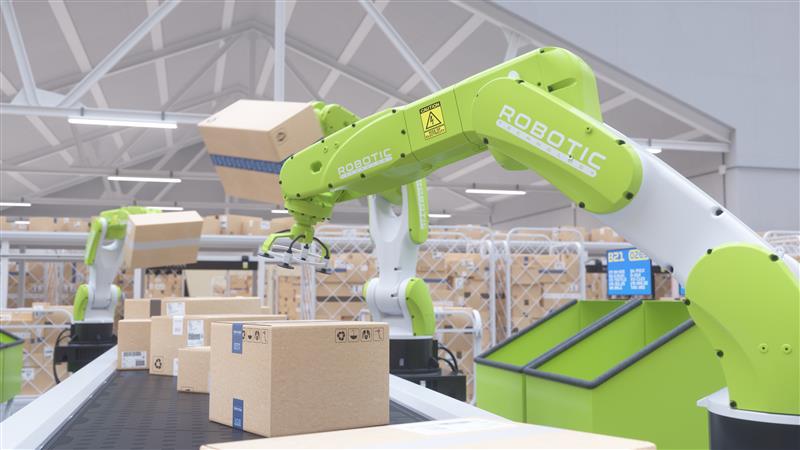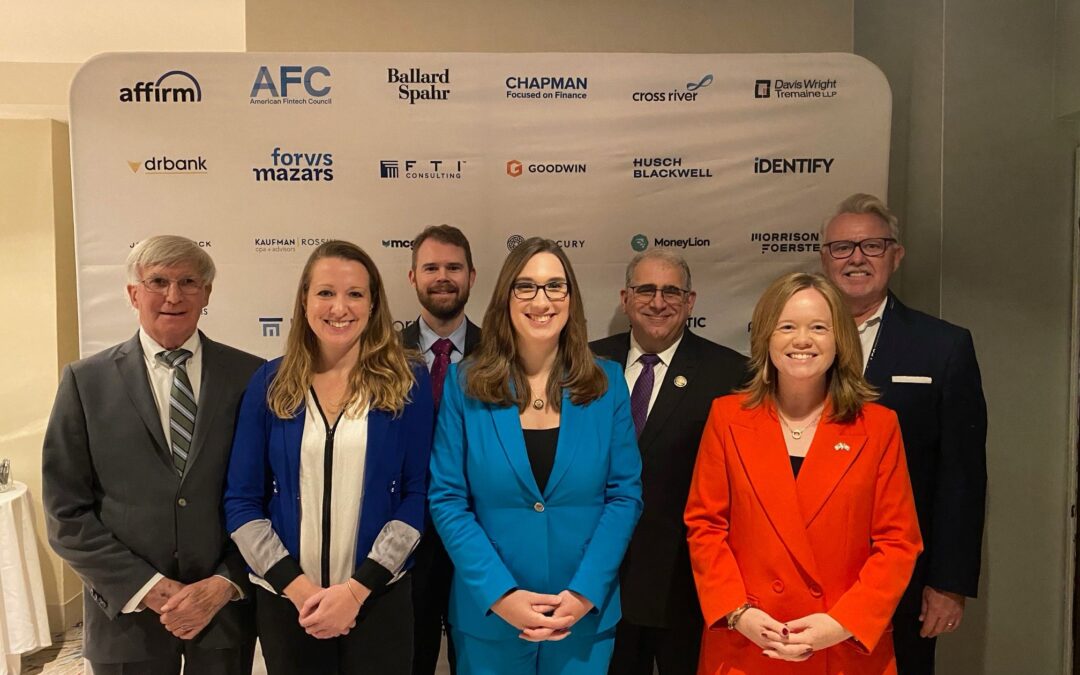WASHINGTON, D.C. — Yesterday, U.S. Representative Sarah McBride (DE-At Large), Lieutenant Governor Kyle Evans Gay, and State Senator Spiros Mantzavinos convened a Delaware delegation of public, private, and academic leaders at the American Fintech Council’s 2025 Policy Summit for a “State Spotlight: Delaware Roundtable.” The discussion highlighted Delaware’s transition from a traditional financial services hub to a national leader in responsible fintech innovation.
The roundtable, held over lunch with national fintech stakeholders, featured:
-
Rep. Sarah McBride, U.S. Representative for Delaware,
-
Lt. Governor Kyle Evans Gay,
-
State Senator Spiros Mantzavinos,
-
Mike Bowman, CEO, Delaware Tech Park,
-
Kristen Castell, Managing Director, Center for Accelerating Financial Equity (CAFE)
-
David Mench, Director of Government Affairs, Delaware Bankers Association,
-
Noah Olson, Vice President for Innovation, Delaware Prosperity Partnership,
-
Albert Shields, Director of Business & Economic Development, University of Delaware.
Together, the group showcased Delaware’s strengths — from its legacy financial sector and business-friendly legal environment to its growing research infrastructure, AI leadership, and fintech-focused workforce training programs — and outlined how the state can help modern financial technology expand access, lower costs, and support families and small businesses.
“Delaware has always punched above its weight — not because we’re the biggest state, but because we work together and build systems that treat people with respect,” said Rep. Sarah McBride. “Today’s conversation made clear that fintech belongs in Delaware when it’s rooted in our values: expanding access to credit, lowering costs for families, and helping small businesses grow. If innovation is going to shape the future of finance, then Delaware intends to shape innovation in a way that puts people first.”
“From Wilmington to Seaford, families want tools that make it easier to save, build credit, and weather financial shocks,” said Lt. Governor Kyle Evans Gay. “Delaware is pairing our long-standing strength in financial services with new investments in AI, data science, and workforce training so that the next generation of fintech is built responsibly — and built right here. When companies choose Delaware, they’re choosing a partner that understands both innovation and inclusion.”
“For the last several years, we’ve brought regulators, banks, startups, and universities around the same table to ask a simple question: how do we turn Delaware’s financial legacy into a fintech future?” said Delaware State Senator Spiros Mantzavinos. “The answer is thoughtful regulation, strong consumer protections, and a clear signal that Delaware welcomes responsible innovation. Today’s roundtable is another step in showing national leaders that Delaware is open for fintech that expands opportunity and plays by the rules.”
“At Delaware Tech Park, we see every day how proximity to banks, researchers, and policymakers accelerates innovation,” said Mike Bowman, CEO of Delaware Tech Park. “Founders want to be in a place where they can test ideas, find talent, and get real-time feedback from partners who understand the regulatory landscape. Delaware offers that unique ecosystem — and with new facilities like the FinTech Innovation Hub at STAR Campus, we’re turning great ideas into high-quality jobs.”
“Our work at CAFE is focused on supporting the growth of fintechs to advance financial wellness for low- to moderate-income (LMI) people,” said Kristen Castell, Managing Director of CAFE, a non-profit org with flagship fintech accelerator program. “While we work with fintechs across the nation, Delaware is our home because our public and private sectors share a commitment to innovation and equity. When innovators come to Delaware, they find not just capital and bank customers, but also a community that expects products to be fair, transparent, and designed for people who’ve historically been left out of the financial system.”
“Delaware’s banking sector has long been a cornerstone of our economy — and fintech is a natural extension of that strength,” said David Mench, Director of Government Affairs for the Delaware Bankers Association. “Our banks are eager to partner with responsible fintech firms to improve customer experience, modernize systems, and expand access to credit. By fostering collaboration instead of competition, Delaware is showing that traditional financial institutions and innovators can grow together and deliver better, safer products for consumers.”
“When fintech companies are deciding where to land, they’re looking for a deep talent pool, a predictable regulatory environment, and partners who can help them scale,” said Noah Olson, Vice President for Innovation at the Delaware Prosperity Partnership. “Delaware checks all of those boxes. We’re seeing growing venture activity in fintech, strong deal values, and companies choosing Delaware because they know they can pilot cutting-edge products here and then grow across the country.”
“The University of Delaware is aligning our research, teaching, and partnerships with the needs of a modern financial innovation economy,” said Albert Shields, Director of Business & Economic Development at the University of Delaware. “From new fintech degree programs to the Data Science Institute and the First State A.I. Institute, we’re preparing students to work at the intersection of finance, technology, and ethics. Our goal is simple: when fintech companies think about where to find their next generation of talent, we want Delaware to be at the top of the list.”
During the roundtable, participants highlighted Delaware’s emerging fintech edge:
-
Legacy financial services strength, including being home to two-thirds of Fortune 500 companies and more than 34,000 financial services jobs.
-
Growing research and academic infrastructure, including the FinTech Innovation Hub at STAR Campus, the UD Data Science Institute’s FinTech Consortium, new fintech degree programs, and the First State A.I. Institute focused on responsible AI in financial transactions.
-
Supportive state leadership, including an AI regulatory sandbox, workforce training partnerships, and collaboration with organizations like the American Fintech Council and CAFE Fintech Accelerator.
Rep. McBride’s participation in the AFC Summit builds on her ongoing work to support responsible innovation, strengthen consumer protections, and ensure emerging technologies expand opportunity for Delaware families and small businesses.

The future of work in Delaware
Backing innovation and strengthening our...

CAFE Leaders Featured on One Vision Podcast to Discuss Financial Equity, Founder Collaboration, and the Future of Fintech
The One Vision Podcast has released a new...

Press Release Dec 2, 2025: IgniteFI and CAFE Partner to Empower Fintechs Serving Credit Unions
IgniteFI, a leading fintech advisory firm...

